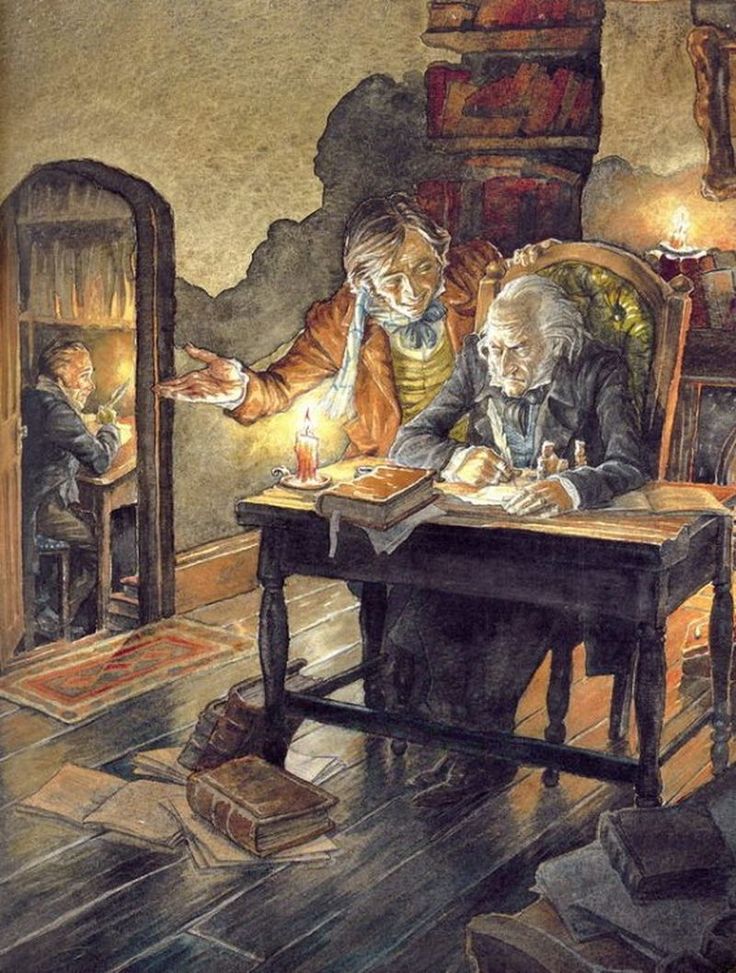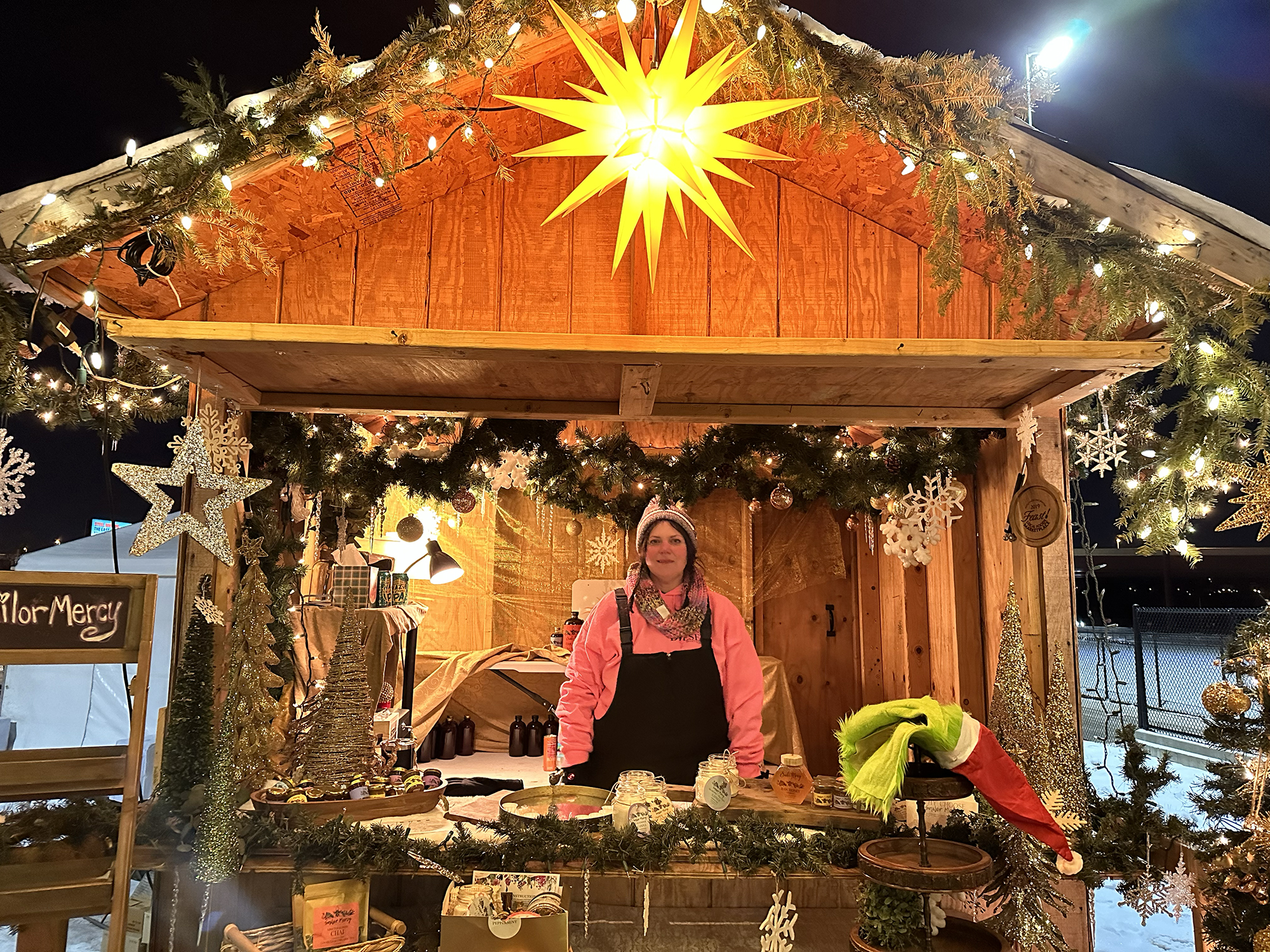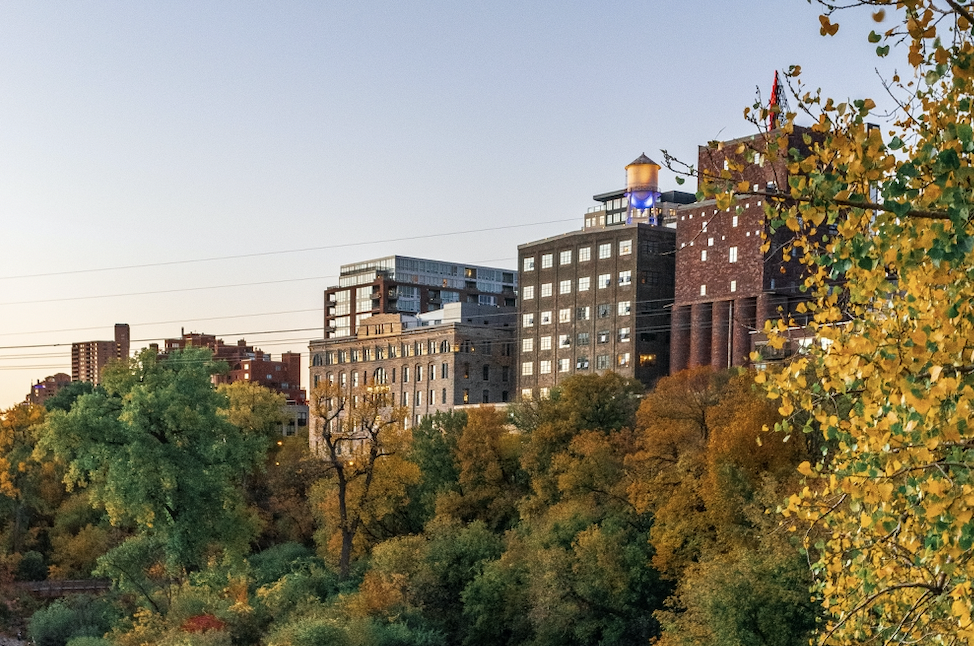Sheldon
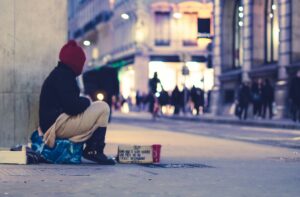
It is almost 11:30 pm. After Minnesota’s first snowfall in months, the twenty degree weather seems much more bitter, much more cold. My friend and I have just walked back to my car, after a late night study session at a coffee shop. The dim lights from houses and street lamps glint on our skin.
As I pull out of my parking spot, I notice a figure, a person. A large sleeping bag is wrapped over the back of his head, covering his torso and warming his hands. He waves at us, smiling. Something about that smile is so disarming. For some reason, I decide to roll down my window.
“Turn on your hazards,” Allika says as I pause my music. The car behind me passes us, and I forget that I told my parents I would be home before midnight.
“Hi, I’m just wondering if you have any extra cash to spare,” he says,“it’s really hard out here.” I feel the cold from the outside entering the warm vehicle. He has a boyish charm, he looks about my age, late teens or early twenties. “My name’s Sheldon,” he adds. I feel his sweetness. How can someone be so warm, so present, in the midst of such difficult conditions? Thankfully my friend and I have some cash, a hat, and a granola bar.
“What are you doing out here?” I say, “what happened? What’s your story?” I’m not used to seeing kids like him out on the street. I know he can read the shock on my face.
“Things got really tough during COVID,” he says, trailing off. His smile disappears, a devastating pain taking its place.
“Where do you sleep?” I ask, “Can we call a shelter?”
“Yeah, do you need to make a phone call?” Allika asks.
“That’s okay,” he says, “Usually they’re full; I sleep in parking garages.” In this cold, I can barely walk without shivering. I cannot imagine how difficult it is for Sheldon to fall asleep.
I look in his eyes, and I see an innocence, coupled with this heavy weariness. I see the faces of the adolescent kids I skateboard with, the ones who get into trouble sometimes, the ones with deadbeat parents. I see a good kid that wasn’t given the help he needed to succeed in life. More than that, I see a strength. I see someone who has made a choice not to give up in the face of mental turmoil and physical poverty.
“I hate to see you go through this,” I tell him, “I know you’re going to get out of this.” I have to believe that he will make it. I have to believe that he’s going to be okay. “God sees everything you’ve been through, and he loves you so much.” Sheldon thanks us, and we bid him goodbye.
After I drop Allika off, I feel this burning in my heart. How does our society allow this to happen? How can I go about my everyday existence when people do not have their basic needs met? According to a new study done by Harvard University, only 6.7% of the world population has completed a college degree. World Bank estimates that “almost half the world’s population—3.4 billion people—still struggles to meet basic needs.” Within just the Minneapolis/Hennepin county area, there are over 3,000 people homeless on a given night (source: National Alliance to End Homelessness). As Christians, we cannot turn a blind eye to this injustice. It is our responsibility to care for these brothers and sisters, especially since we have already been given so much.
1 John 3:7 says “If anyone has material possessions and sees a brother or sister in need but has no pity on them, how can the love of God be in that person?” I’m guilty of spending my money on frivolous things. I am realizing, more and more, that I cannot comfortably spend money on useless, materialistic things when so many people are barely able to afford food, toiletries, and medical care.
Helping the needy is more about developing relationships with people than it is about giving money. Financial support is just a small part of this healing journey. Jesus says “I tell you the truth, whatever you do to the least of these brothers of mine, you did for me.” I encourage you, reader, to pray for God to help you serve the disenfranchised in this unique season of life. Small acts of kindness and generosity make a huge difference. As you’re walking the streets of downtown Minneapolis, or wherever you live, be attuned to the people around you. Don’t turn a blind eye to their needs, for in loving and giving to others who have less, we lavish love on God.
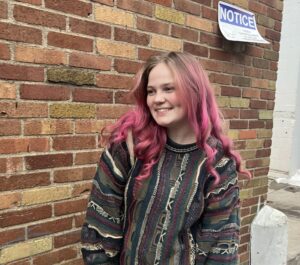
Tessana Krueger
Lorem ipsum dolor sit amet consectetur adipiscing elit dolor


